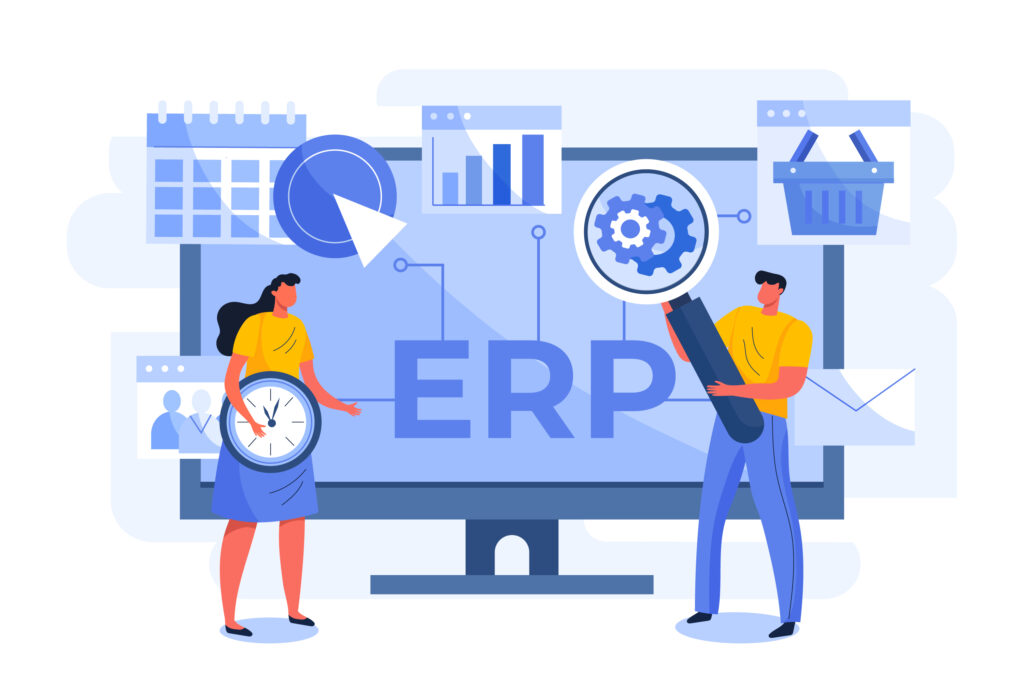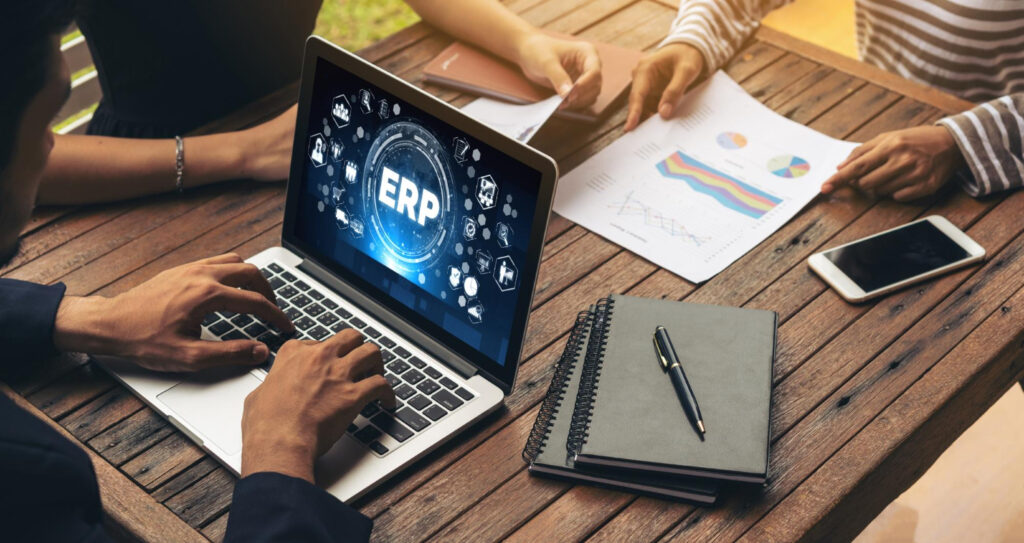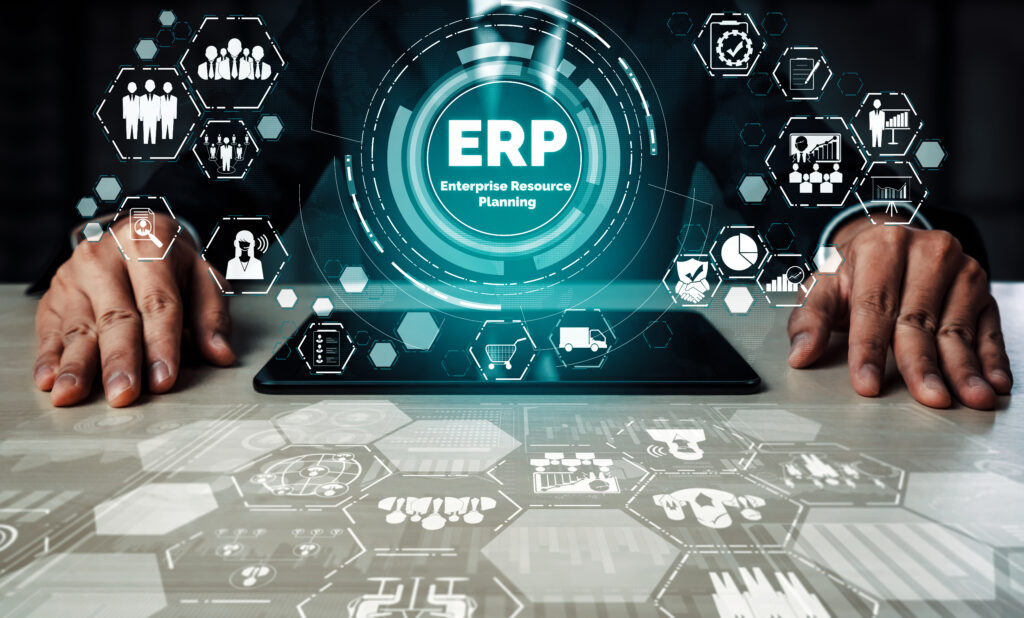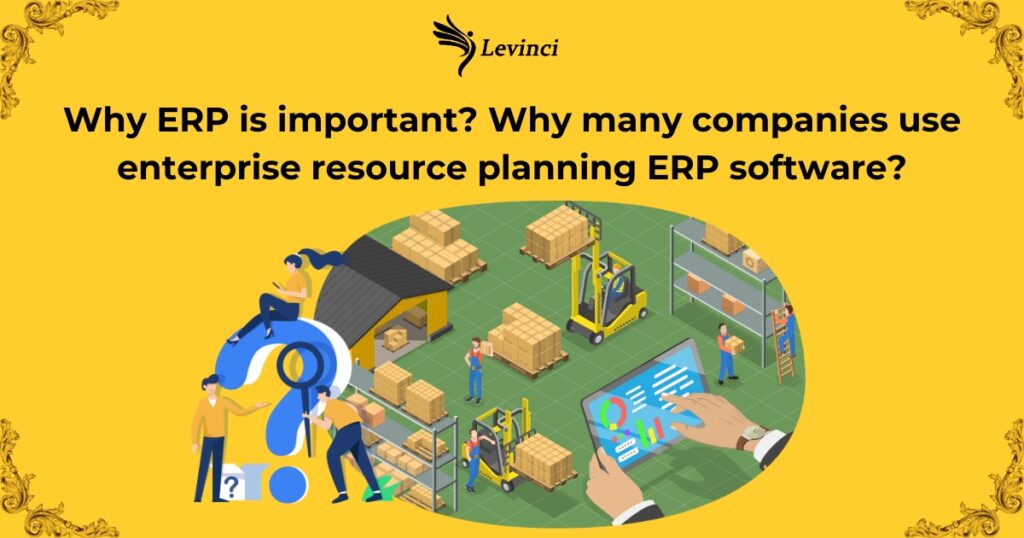ERP systems are the smartest and most optimal choice for businesses in managing and storing data. So why ERP is so important? Why should businesses use ERP System? Let’s find out with Levinci!
The functions of ERP software
ERP is the optimal solution chosen by many businesses to organize, manage and optimize their operations. Each business will have different needs, so custom ERP software was born to help businesses choose the appropriate module and expand the scale when necessary.
ERP software has many important functions to manage and integrate business activities within an organization.

Here are some main ERP functions:
- Financial management: Manage accounts, payments, and financial transactions; Integrate general accounting and cost accounting.
- Human resource management: Track employee information, including salary, working-hour, manage the recruitment and training process.
- Supply chain management: Optimize ordering process, and warehouse management; manage information about suppliers and business partners.
- Production management: Integrate production processes and manage production resources; evaluate production line performance.
- Sales and customer service management: Integrate sales and customer care processes; manage order information and customer service.
- Reporting and analytics: Provides reporting and data analysis for decision support; generate automated dashboards and reports.
- Customer relationship management: Track information and interact with customers; optimize promotion and sales strategy.
- Project management: Track the status of projects, manage human and capital resources throughout, and enable managers to approve costs and timesheets.
Why ERP is important?
Enterprise Resource Planning (ERP) systems offer a powerful solution, acting as a centralized platform that seamlessly integrates core business functions like finance, inventory, and sales. This holistic approach eliminates departmental data silos and automates repetitive tasks, empowering employees to focus on strategic initiatives. ERP unlocks the power of real-time data, providing a comprehensive view of your organization for informed decision-making. You can leverage robust analytics to identify trends, optimize resource allocation, and anticipate customer needs.
The benefits extend beyond internal operations. Streamlined processes facilitated by ERP ensure faster order fulfillment and improved customer service, leading to enhanced satisfaction and loyalty. By implementing an ERP system, you gain a strategic advantage, fostering efficiency, cost savings, and a data-driven approach to propel your business forward.

Here’s a breakdown of why ERP is important:
Saving money and time
With the ERP system, businesses will effectively monitor and control costs for business activities. Real-time updates, reporting and financial analysis help business owners manage resources intelligently and optimally.
Integrating data and processes helps businesses save costs and time. This is not only an effective investment but also a smart step towards sustainability and development.
Enhancing security
When using an ERP System, business data will be secured by a firewall to prevent data breaches. Administrators can also closely monitor access points to grant access to employees appropriate to their roles, deactivate former employees, and quickly identify unauthorized activity in the system.
Improve customer service
The market is increasingly competitive and businesses are increasingly focusing on customer experience. The ERP system helps to compile all customer data completely and accurately. Therefore, businesses can solve problems and support customers quickly.
Deep data analytics help businesses make strategic decisions
An ERP system is not only a source of data, but also a powerful analytical tool. This feature will predict labor situations, needs and budgets, thereby helping businesses set appropriate budgets and better plan product development.
Improving management
ERP software is a comprehensive platform for managing employee information such as personal profiles, work history, salaries, benefits, and many other information. Therefore, the human resources department can access and manage employee information effectively as well as evaluate performance accurately.
Easy to tailor software to meet the specific needs of a business
ERP can be easily customized to meet the specific requirements and workflows of each business. Therefore, businesses can quickly respond to changing market needs, improve customer satisfaction and increase profits.
Some popular ERP modules and special features

ERP systems include many different models to coordinate and support specific business processes according to the needs of the business. Here are some popular ERP modules:
Finance and Accounting
It can be affirmed that this is the backbone and most important feature of most ERP systems. In addition to managing general data and automating important financial tasks, it also helps businesses track accounts payable (AP) and receivables (AR), generate financial reports, and minimize financial risks,…
Procurement
Procurement module (purchasing module) helps businesses find raw materials needed for production and sales, track all order information such as supplier information, purchase quantity, purchased items, delivery time, payment terms and costs.
The purchasing module also integrates with production planning, inventory control and supply chain management software modules.
Manufacturing
Production Module helps manufacturers plan production and check everything necessary for the production process such as raw materials, machinery, etc. Furthermore, during the production process, the Production Module will update the goods status so that the company can monitor actual output, and calculate the average time to produce an item to plan appropriate production.
Sales
The procurement module (or purchasing module) helps the organization source the materials or products needed during production and sales. Specifically, the procurement module will track all order information such as supplier information, purchase quantity, items, delivery time, payment terms, and costs.
Human resources management
Most ERP systems include an HR module that provides features such as workforce analytics, time tracking automation, payroll, or all activities related to human resource management.
Customer Relationship Management (CRM)
The customer relationship management (CRM) module stores all information about customers such as communication and purchase history, segmentation data and targeted cross-selling recommendations. When using CRM, businesses can manage and support customers more effectively through plans to improve marketing and sales processes.
Dashboard
Dashboard is a data information system management tool in a single common space where data flows are closely linked together and present in different forms: Charts, graphs, tables,…
When using dashboards, businesses can find the most accurate purpose and problem. From there, businesses make plans to improve the situation quickly.
Project management module
These modules allow you to manage projects directly within the ERP system such as break down projects into tasks, assign them to team members, and track progress; manage and allocate resources (people, equipment, materials) to different projects; gain insights into project performance through reports and dashboards.
Why you should choose the custom ERP development service of Levinci?
Unlike off-the-shelf ERP systems, Levinci builds custom solutions that perfectly fit your business’s unique processes and workflows. You can automate tasks, generate reports tailored to your needs, and address specific pain points within your current system.
Custom ERPs deployed on-premise servers can offer a security advantage over cloud-based solutions. You have more control over data access and security protocols.
Conclusion
ERP systems are optimized for easier data storage, and more flexible and efficient management. That is why ERP becomes extremely important and businesses need to use ERP systems to increase business efficiency. If you want to deploy a suitable ERP system for your business, contact Levinci now!

